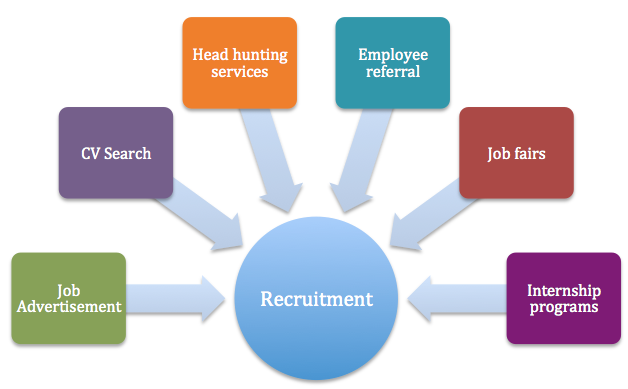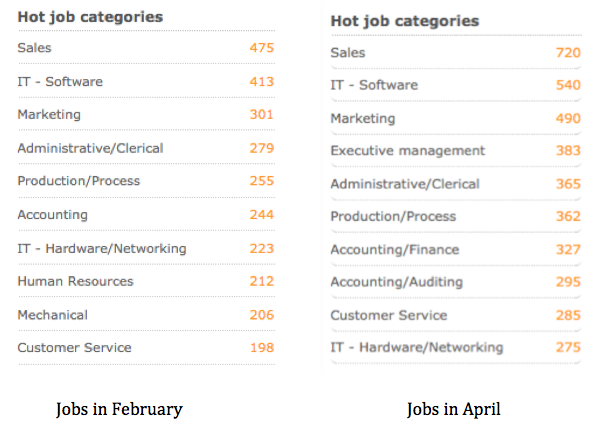As mentioned in the previous post, we are now in the middle of the recruitment season in Vietnam. But how does the recruitment in Vietnam happen? Which channels are available? In this post, an overview of the available recruitment channels in Vietnam will be given, with comments regarding to their popularity, effectiveness, cost and recommended usage scenarios.
Generally speaking, there are six main channels of recruitment in Vietnam:

Recruitment channels in Vietnam
Job advertisement: This is the most popular and may also be the most effective recruitment channel in Vietnam. When using this channel, Vietnamworks should be the first one to consider due to its popularity. Other job advertisement websites that can be listed here includes CareerBuilder, CareerLink, Tim Viec Nhanh or Aphabe. In terms of pricing, a job advertisement that stays one month on Vietnamworks costs around 100-150 USD, depending on the options. Generally speaking, this recruitment channel is suitable for most common jobs when the employers have certain knowledge and experience in the labor market as well as know how to do recruitment in Vietnam.
CV search: A more proactive way to approach the candidates is to buy access to candidates database of such job websites as Vietnamworks, CareerBuilder or CareerLink. With approximately 150 USD, employers can search for and have contacts of 60 candidates from Vietnamworks’ database. From my experience, this channel is less effective than job advertisement due to the fact that many CVs are outdated and candidates may no longer look for a new job when being contacted. This should be used as a supporting channel together with the job advertisement or in the case employers know very well about the labor market and want to be more proactive in their recruitment.
Head hunting services: If the employers are quite new to the local labor market, they can also seek help from other firms specialized in HR services. Basically all of the job websites listed above also provide head hunting services, plus many smaller firms such as Tri Tri, Manpower or Anh Duong Talent. Commission fee for these services can vary between different service providers, with an average of 20% of the annual income of the candidate. The effectiveness can also vary depending on the HR partners that are selected. This channel can also be considered for high level positions or for mass recruitment in a short period of time.
Employee referral: Not every company in Vietnam takes advantage of this recruitment channel. Whereas the quality of the candidates are more reliable than from other channels, it may not be suitable for mass recruitment. Referral bonus is usually given to the employee after the nominated candidate passes his or her probation. The amount can vary from company to company, but a few hundreds of dollars is a common number.
Job fairs: This channel is quite low in terms of both popularity and effectiveness. Job fairs can be more helpful for mass recruitment of low-skilled employees or fresh graduates. Besides joining the job fairs that are organized by the government, companies with high reputation can also organize their own job fairs.
Internship program: Among the six channels that are presented here, this is the least popular one that focuses only on fresh graduates. The effectiveness of this channels depends on the affiliation between the employers and universities or training centers that offer internship program. With proper implementation, this can be a very good approach to attract young talents into the organization.
Generally speaking, job advertisement can be considered as the most popular and effective recruitment channels in Vietnam. With the rising demand for high quality employees, the usage of head hunting services is also increasing significantly. However, an effective recruitment strategy may need to combine and utilize all of the six channels that are available in Vietnam.



